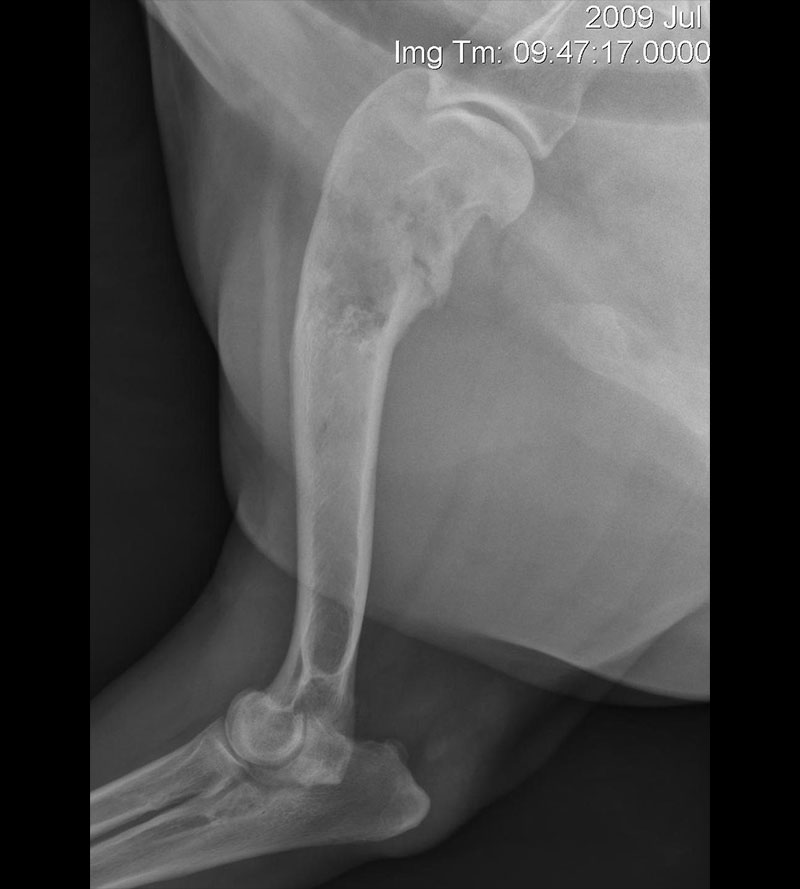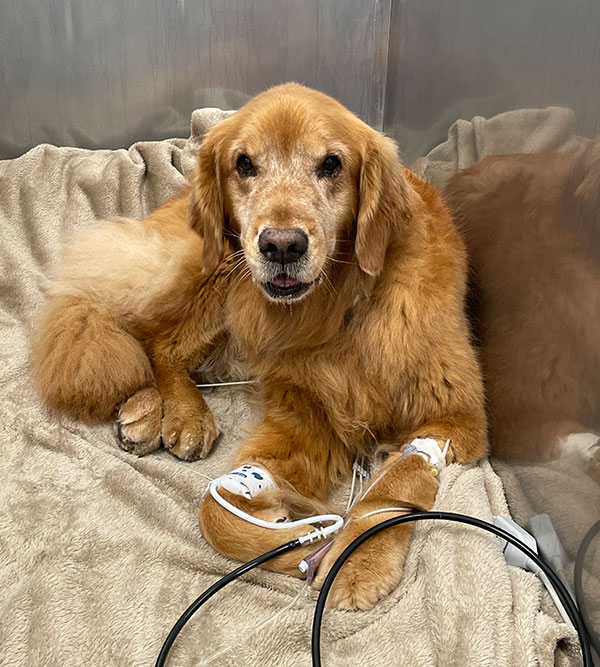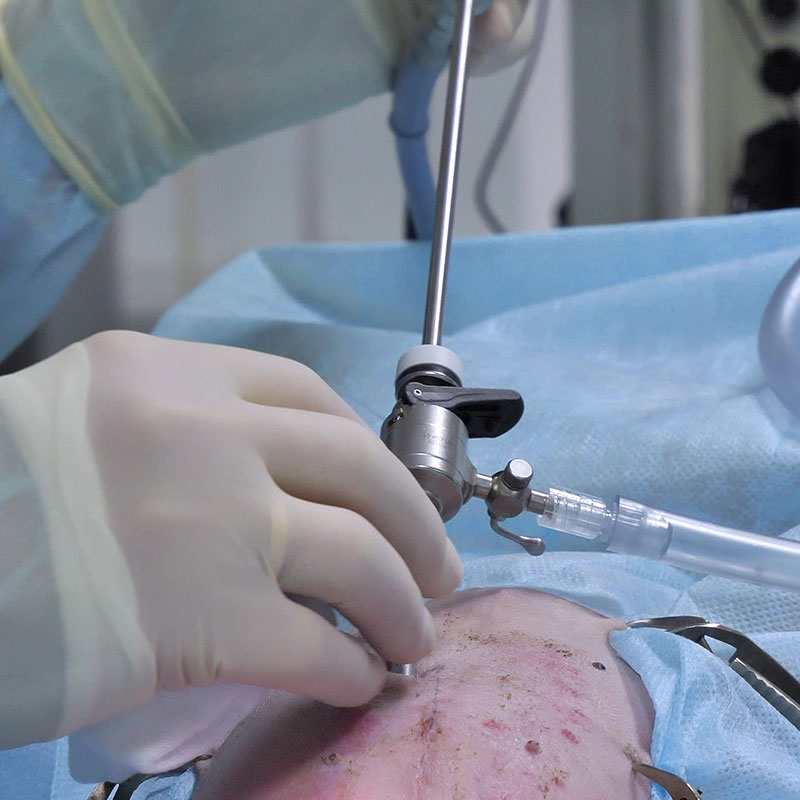Laparoscopy / Thoracoscopy
Laparoscopy and thoracoscopy are minimally invasive surgeries for pets where small incisions are made to insert a camera and instruments to look inside the body. Laparoscopy is used for abdominal issues, while thoracoscopy focuses on the chest. These procedures are less painful, have quicker recovery times, and allow vets to diagnose and treat conditions with smaller cuts compared to traditional surgery.
- Spay
- Cryptorchid neuter
- Gastropexy
- Cystotomy
- Pericardiectomy
- Biopsies

Cancer Surgeries
When the unthinkable happens, we are here to help. Surgery can help improve comfort and survival times for many types of cancers. We will work with your regular vet or oncologist in a coordinated effort to help give your pet the very best care.
Common conditions we treat include:
- Bone cancer (osteosarcoma)
- Mast cell tumor
- Hemangiosarcoma
- Soft tissue sarcoma

Soft Tissue
Soft tissue surgeries are broad based and can include surgery of anything that is nor a bone or joint.
Common soft tissue surgeries that we perform include:
- Abdominal exploratory surgeries for foreign bodies, masses, or hernias
- GDVs (Gastric Dilatation and Volvulus)
- Wounds and laceration repairs
- Bladder stone removal
- C-sections
- Pyometra
- Biopsies
- Thyroid/parathyroid resection
- Total ear canal ablation
- Salivary gland resection for Mucocele
- Surgical oncology and reconstruction
- Cholecystectomy
- Adrenalectomy
- Lung lobectomy
- Thoracic duct ligation for Chylothorax
- Wound management with flap and skin grafting
- Gastrointestinal surgery
- Urogenital procedures
- Hernia repair
- Brachycephalic airway surgery
- Splenectomy
- Perineal urethrostomy

Does my pet need surgery?
Dogs and cats frequently minimize signs of their discomfort and do not yelp or feel sorry for themselves. If you notice the following signs, contact Midwest Veterinary Specialists for a consultation:
- Lameness/limping or a decrease in weight bearing of one or more limbs
- Dragging one or more limbs
- Head bobbing when walking or trotting
- Shifting weight off one or more legs when standing (such as the ‘floating foot,’ hiking a leg up, leaning forwards, backwards or to one side)
- Abnormal angulation of a limb or a joint
- Exercise intolerance, reduced energy, or avoidance of high energy activities
- Inability to walk
- Reluctance to climb stairs, jump into a vehicle, or jump into the couch
- Reluctance to go down stairs or jump off of something
- “Sloppy sitting” with the back legs (i.e. hindlimbs kick out to the side when sitting)
- Hiding or acting clingy
- Decreased appetite
- Accidents outside the litter box
- Lameness/limping or a decrease in weight bearing of one or more limbs
- Dragging one or more limbs
- Head bobbing when walking or trotting
- Shifting weight off one or more legs when standing (such as the ‘floating foot,’ hiking a leg up, leaning forwards, backwards or to one side)
- Abnormal angulation of a limb or a joint
- Exercise intolerance, reduced energy, or avoidance of high energy activities
- Inability to walk
- Reluctance to climb stairs, jump into a vehicle, or jump into the couch
- Reluctance to go down stairs or jump off of something
- “Sloppy sitting” with the back legs (i.e. hindlimbs kick out to the side when sitting)
- Hiding or acting clingy
- Decreased appetite
- Accidents outside the litter box



